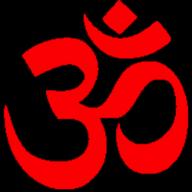If imperfection has a standard goal, and by nature imperfection fulfills the goal, so does that count as perfection?
2016-05-30 11:07 am
回答 (11)
2016-05-31 6:14 am
✔ 最佳答案
Sure, if you like. But the idea of imperfect does not have inherent to existence at all, because everything always is perfectly 'what it is and supposed to be', by way of 'being what it is'. Only our "perception" is flawed and imperfect. A 'crooked tree', is a perfectly crooked tree. A 'shatter glass', is a perfectly shattered glass. Perception is an observation mechanism that acts like a filter. Were perception capable of being "perfect", a filter would not be necessary. Human over reliance on the mind and intellect tends to mislead us to accept almost everything that registers to perceptual observation, which is limited and restricted to a narrow "field of awareness."Because the mind is limited sequential observation, and the material paradigm of form and 'content' (specifics and details), we assume everything progresses in a "linear fashion". However, unaided, the mind cannot differentiate physical "appearances" from, nonphysical "essence", and fails to register the nonlinear paradigm of formless 'context' (meaning and significance). This is why the mind is conditioned to think in "finite, material terms", and is prone to running into "logical error", in it's sequential observation as existence is revealed to us. Thus, arises the notion of "imperfection" from "imperfect perception"
Although, practical to the material world of form, the mind and it's perception are not completely reliable, given that it has been discovered that the material realm is actually 4% of our entire universe. The remain 96% is intangible and nonlinear "dark" matter and energy, not detectable to any known material instruments. Because there isn't much use for the mind in the universe, it needs something to keep itself occupied and amused, or else it experiences "boredom". To overcompensate for a lack of usefulness, it becomes obsessed with conjuring up problems to be resolved, where there are none (i.e., "imperfection").
Complicating matters further, the mind plays out abstract "mental games" in it's imagination then goes on to take them to be naturally occurring in the universe, using them to "define" and "measure" the content, as well as the context of existence. The change of material form "appears" to perception as "sequential", thus the mind projects the concept of linear, finite time and the idea of "cause and effect" to explain the process of change. Therefore, the intellect mistakenly observes everything linearly advancing from a stage of "incomplete" to "complete", "imperfection" to "perfection", yet perception never "sees" 'completion' and 'perfection' in the material world of form, because linear change is ongoing.
This is why it is said, "nothing is perfect," and the idea of perfection remains illusive, in a material sense. When the mind and perception are removed, everything is, 'as it is', without names, definitions and descriptions imposed by the mind to limit existence to a scope it can comprehend. The 'instant-to-instant' unfoldment of the universe, at the speed of light, is an endless succession of 'complete to complete', 'perfection to perfection', as unmanifest potentiality emerges as the manifest, in actuality. Everything is a perfect expression of what it is, as a result of the fulfillment of it's own potential, up to the moment. It is the mind, and it's material pursuit of "knowledge" that obscures this Reality.
At best, the mind and perception can only approximate, and know "about" knowledge, because to 'know' means identifying with and being the known. Humanity typically ends up with answers that lead to more questions to be ask because, 'knowledge only begets more knowledge, without end'. The degree of ones knowledge indicates the equal degree of 'ignorance'. Hence, it is said, "the wise only know that they know nothing," as Socrates confessed near the end of his life. No surprise that the "Original Sin" was eating from "The Tree of Knowledge," resulting in a earthly existence on the mortal plane, with guilt, shame, and ego. Christ, as did The Buddha before Him, taught that 'sin' is another word for 'ignorance', and were considered to be without ego or sin.
2016-05-30 4:49 pm
Yes, with respect to the goal. Perfection is subjective.
For example, using a car perfectly suited for formula one racing would not be perfect for the Baja 500.
For example, using a car perfectly suited for formula one racing would not be perfect for the Baja 500.
2016-05-30 2:35 pm
Imperfection leads to inconsistency..... therefore it can have no standard goal.
2016-05-31 9:43 pm
Ask perfect human we can count anything or one as perfect I the true sense but God. But in the near future we will know what it like to be perfect. Right now our love can be perfect.
Importance of Correct Viewpoint. For correct Bible understanding one must not make the common error of thinking that everything called “perfect” is so in an absolute sense, that is, to an infinite degree, without limitation. Perfection in this absolute sense distinguishes only the Creator, Jehovah God. Because of this Jesus could say of his Father: “Nobody is good, except one, God.” (Mr 10:18) Jehovah is incomparable in his excellence, worthy of all praise, supreme in his superb qualities and powers, so that “his name alone is unreachably high.” (Ps 148:1-13; Job 36:3, 4, 26; 37:16, 23, 24; Ps 145:2-10, 21) Moses extolled God’s perfection, saying: “For I shall declare the name of Jehovah. Do you attribute greatness to our God! The Rock, perfect is his activity, for all his ways are justice. A God of faithfulness, with whom there is no injustice; righteous and upright is he.” (De 32:3, 4) All of God’s ways, words, and law are perfect, refined, free from flaw or defect. (Ps 18:30; 19:7; Jas 1:17, 25) There is never any just cause for objection, criticism, or faultfinding regarding Him or his activity; rather, praise is always due Him.—Job 36:22-24.
Other perfection relative. Perfection of any other person or thing, then, is relative, not absolute. (Compare Ps 119:96.) That is, a thing is “perfect” according to, or in relation to, the purpose or end for which it is appointed by its designer or producer, or the use to which it is to be put by its receiver or user. The very meaning of perfection requires that there be someone who decides when “completion” has been reached, what the standards of excellence are, what requirements are to be satisfied, and what details are essential. Ultimately, God the Creator is the final Arbiter of perfection, the Standard-Setter, in accord with his own righteous purposes and interests.—Ro 12:2; see JEHOVAH (A God of moral standards).
Importance of Correct Viewpoint. For correct Bible understanding one must not make the common error of thinking that everything called “perfect” is so in an absolute sense, that is, to an infinite degree, without limitation. Perfection in this absolute sense distinguishes only the Creator, Jehovah God. Because of this Jesus could say of his Father: “Nobody is good, except one, God.” (Mr 10:18) Jehovah is incomparable in his excellence, worthy of all praise, supreme in his superb qualities and powers, so that “his name alone is unreachably high.” (Ps 148:1-13; Job 36:3, 4, 26; 37:16, 23, 24; Ps 145:2-10, 21) Moses extolled God’s perfection, saying: “For I shall declare the name of Jehovah. Do you attribute greatness to our God! The Rock, perfect is his activity, for all his ways are justice. A God of faithfulness, with whom there is no injustice; righteous and upright is he.” (De 32:3, 4) All of God’s ways, words, and law are perfect, refined, free from flaw or defect. (Ps 18:30; 19:7; Jas 1:17, 25) There is never any just cause for objection, criticism, or faultfinding regarding Him or his activity; rather, praise is always due Him.—Job 36:22-24.
Other perfection relative. Perfection of any other person or thing, then, is relative, not absolute. (Compare Ps 119:96.) That is, a thing is “perfect” according to, or in relation to, the purpose or end for which it is appointed by its designer or producer, or the use to which it is to be put by its receiver or user. The very meaning of perfection requires that there be someone who decides when “completion” has been reached, what the standards of excellence are, what requirements are to be satisfied, and what details are essential. Ultimately, God the Creator is the final Arbiter of perfection, the Standard-Setter, in accord with his own righteous purposes and interests.—Ro 12:2; see JEHOVAH (A God of moral standards).
2016-05-31 1:40 pm
If imperfection has a standard goal, and by nature imperfection fulfills the goal, so does that count as perfection?
~~~ "Every kind of partial and transitory disequilibrium must perforce contribute towards the great equilibrium of the whole.." - Rene' Guenon
~~~ "Every kind of partial and transitory disequilibrium must perforce contribute towards the great equilibrium of the whole.." - Rene' Guenon
2016-05-31 8:02 am
What is to be achieved through dedicated effort is goal.
Imperfection can never be a goal.
Imperfection can never be a goal.
2016-05-31 12:38 am
No. In actual practice, the implementation of the decision will be delayed and one cannot reach the goal in time.
參考: own
2016-05-30 5:01 pm
Perfection/imperfection are arbitrary terms. So yes when you are making things up it is easy to pervert them.
2016-05-30 12:58 pm
Only conscious beings have goals. Imperfection is not a being, it is a state of bring, therefore it's a false postulate.
2016-05-30 12:09 pm
According to Darwin, a successful adaptation to the environment is perfection.
收錄日期: 2021-05-01 20:45:52
原文連結 [永久失效]:
https://hk.answers.yahoo.com/question/index?qid=20160530030704AAYzEKg




